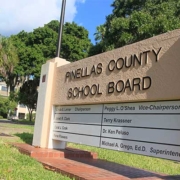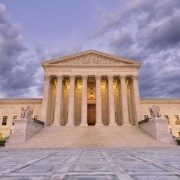I am extremely sad to announce that Hon. Cynthia Cox has transferred from Civil/ Foreclosure to Criminal/Mental Health in the 19th Circuit. She was extremely helpful and knowledge. The foreclosure attorneys will greatly miss her insight and case law update. Good Luck Judge Cox in your new courtroom.
There are many recent changes to foreclosure case law that effect consumers. In an effort to keep you informed of what you may see in your foreclosure defense case, I have listed some case synopses here. Many of these case synopsis were done by Judge Cynthia Cox in the 19th Circuit. Judge Cox’s synopsis could not be improved upon so I posted hers in tact.
Pinellas, Pasco and Hillsborough counties are 2nd DCA and a link to the case is included. Contact us for your foreclosure defense today.
Note Worthy Foreclosure Cases March 2016
Ortiz v. PNC, Case No. 4D15-242 (4th DCA 3/30/16 substituted for 3/9/16 opinion) The combination of evidence (original note filed in same condition as attached copy to complaint) is sufficient to establish the Bank had actual possession of note at time of filing and had standing. Substantial compliance with conditions precedent is all that is required in foreclosures (Paragraph 22).
Knowles v. BNY, Case No. 4D15-630 (4th DCA 3/30/16) No standing where there is no evidence that the Note was transferred into the trust prior to filing and involuntary dismissal ordered. See also Jelic.
Alexandre v. Scribner Village HOA, Case No. 4D15-1514 (4th DCA 3/30/16) BK petition automatically stays any further f/c action and error to enforce FJ when stay in place. Sale should have been set aside.
Catalina v. FNMA, Case No. 15-0271 (3d DCA 3/30/16) Associations are not entitled to interest, late fees, atty fees and costs of collection under the safe harbor protection of 720.3085(2)(c) and only assessments and common HOA expenses.
Alekseyev Shapiro v. US Bank, Case No. 4D14-2668 (4th DCA 3/23/16) Trial court loses jurisdiction to vacate a “voidable” final judgment after 1 year under Rule 1.540.
Firth, Case No. 5D15-3301 (5th DCA 3/21/16) Entry of default FJ without trial when damages are unliquidated (liability only) is error – defaulted party entitled to receive notice of trial on damages. Default as to liability is not a final order.
Cornerstone v. Painted Post, Case No. 4D15-1907 (4th DCA 3/16/16) Simply failing to make payments in Florida is not sufficient minimum contact with Florida to assert personal jurisdiction.
Geweye v. Ventures Trust, Case No. 2D14-4668 (2nd DCA 3/16/16) Original Note indorsed in blank and Assignment of mortgage (which did not assign interest in Note) did not establish standing on date of filing. An order of substitution does not create standing.
Lentz v. Community, Case No. 3D14-0726 (3d DCA 3/9/16) SJ reversed for Court to enforce the parties’ mediation agreement. Although Courts cannot force banks to offer modifications, Florida’s policy is to promote settlement after the Bank attempted to alter an illusory MSA.
Chase v. Greenwood, Case No. 5D15-832 (5th DCA 3/2/16) Failing to appear at hearing due to inadvertent secretarial error = excusable neglect and dismissal reversed per Brogdon.
Miller v. BNY, Case No. 4D15-36 (4th DCA 3/2/16) Failure to send proper notice of acceleration is complete dismissal (as to both acceleration and past due amounts – see Holt v. Calchas substituted opinion @ 155/499).
Carol A. Lawson, Esq., 28870 U.S. Hwy 19 #300, Hodusa Towers, Clearwater, FL 33761
Phone: (727) 410-2705; email: [email protected]
Clearwater Bankruptcy Attorney, Clearwater Bankruptcy Lawyer, Clearwater Bankruptcy, Clearwater Estate Planning Attorney, Pinellas Estate Planning Attorney, Pinellas Probate Attorney #FileLocallyDontOverpay #ClearwaterBankruptcy #ClearwaterBankruptcyAttorney #ClearwaterEstatePlanning #ClearwaterProbate















